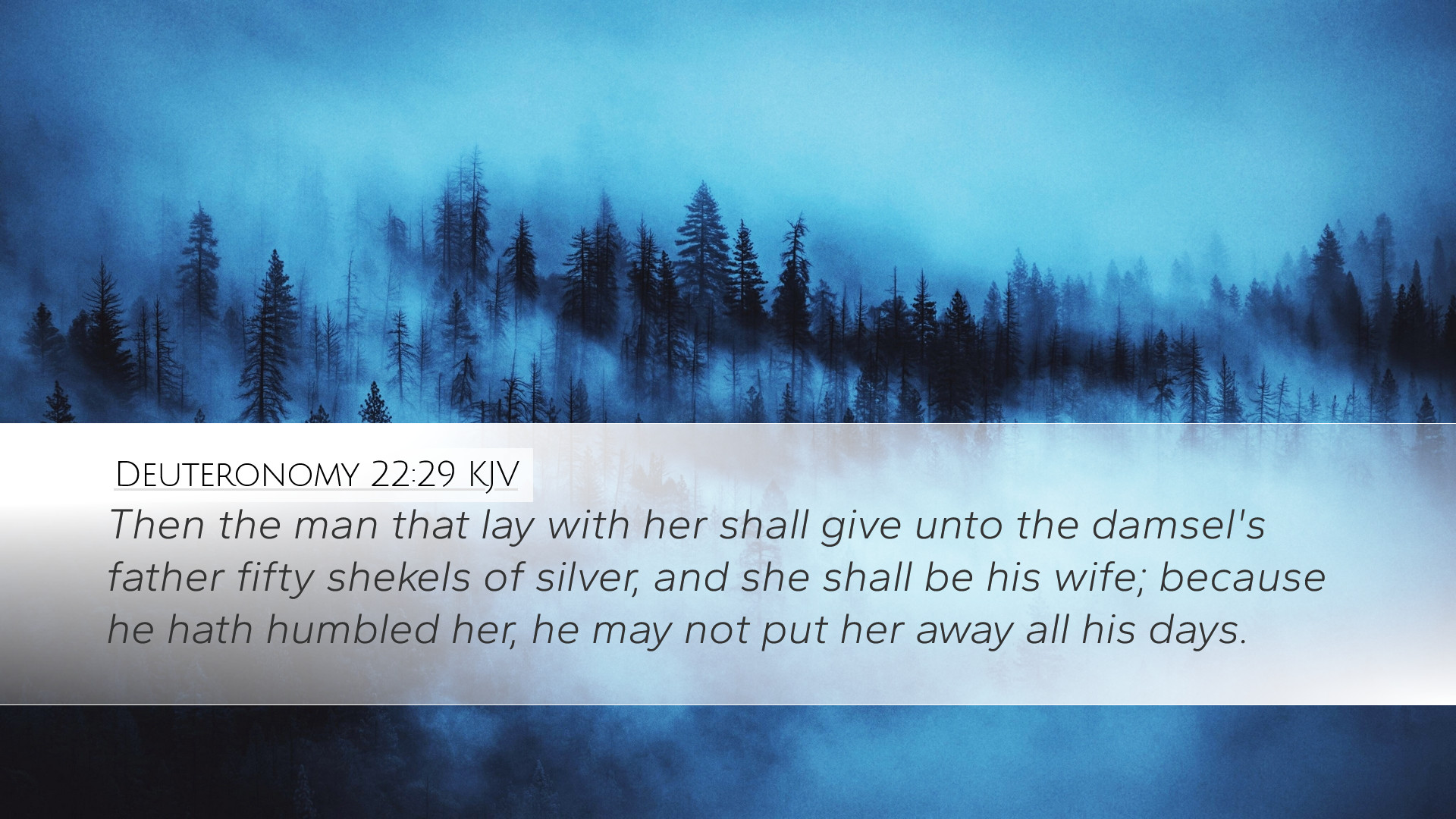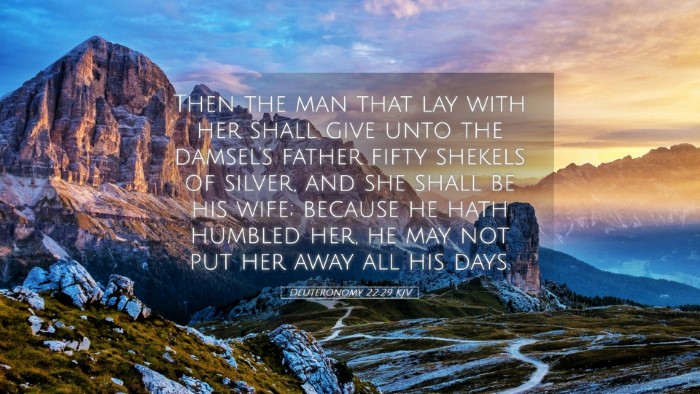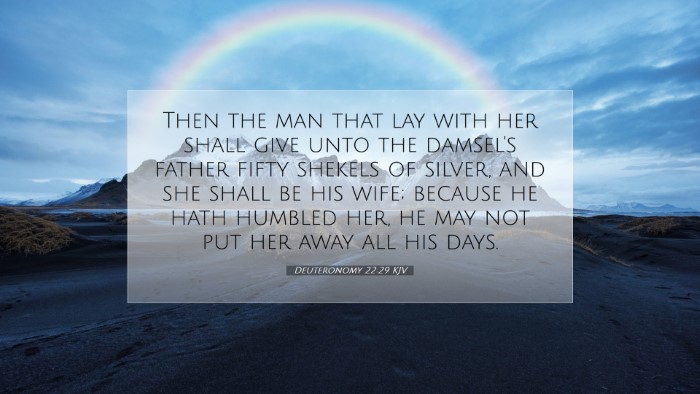Commentary on Deuteronomy 22:29
Bible Verse: "Then the man who lay with her shall give to the girl's father fifty shekels of silver, and she shall become his wife, because he has humbled her; he cannot divorce her all his days." (Deuteronomy 22:29, ESV)
Introduction
This verse addresses a specific situation in ancient Israel regarding sexual relations and their consequences. It reflects the social and legal frameworks that governed the behavior of individuals in the community. The law aims to protect the dignity of women while establishing a means of restitution for wrongs committed against them. This commentary seeks to unravel the purpose and implications of this law through insights from respected public domain commentaries.
Meaning of the Verse
In this verse, a man who has engaged in illicit sexual relations with a woman is mandated to provide a compensation of fifty shekels of silver to her father, effectively marrying her as a means of making amends. The following points elucidate the underlying principles:
- Marital Restoration: The command for the man to marry the woman signifies a restoration of her dignity and social standing. It seeks to rectify the shame that has befallen her due to the violation.
- Prevention of Exploitation: By instituting a marriage requirement, the law protects women from further exploitation by ensuring that the offending party holds a lifelong commitment to her welfare.
- Compensation as Justice: The financial penalty underscores the serious nature of the offense committed. Fifty shekels was a substantial sum, indicating the gravity with which the offense was regarded.
Insights from Matthew Henry
Matthew Henry highlights that this law serves to uphold the sanctity of marriage and the protection of vulnerable individuals within society. According to Henry:
- Divine laws are designed to maintain order in society, and this specific law reflects God’s concern for social justice and righteousness.
- Henry emphasizes the gravity of sexual sin, noting that it carries ramifications not only for the individuals involved but also for the community as a whole.
- The law discourages promiscuity and enforces the commitment that comes with marital relations, reinforcing the bond that should exist between spouses.
Insights from Albert Barnes
Albert Barnes offers a poignant interpretation, focusing on the societal implications of the law:
- Barnes points out that this law acts as a deterrent against unlawful sexual conduct and reinforces the need for accountability within relationships.
- He illustrates that the enactment of this law is not merely punitive but aims at restoring the integrity of the woman involved, thereby fostering familial and community stability.
- Barnes also elucidates the socio-economic aspects, noting that the payment to the father serves to honor the family unit, underscoring the importance of parental authority in the moral framework of ancient Israel.
Insights from Adam Clarke
Adam Clarke provides further insights into the cultural and legal ramifications of this verse:
- Clarke argues that the law reflects a protective measure for women, ensuring that men cannot easily forsake their responsibilities following such actions.
- He explains that the stipulation against divorce "all his days" signifies a commitment that deters further victimization of the woman, promoting a sense of responsibility.
- Additionally, Clarke notes that the financial compensation serves to acknowledge the wrong committed, ensuring that the offense is treated with the seriousness it deserves.
Theological Reflections
The theological implications of Deuteronomy 22:29 are significant for understanding God's vision for human relationships:
- Divine Justice: The verse embodies the principle that God desires justice and equity within human interactions, urging responsible actions and care for one another, especially the vulnerable.
- Human Dignity: This law affirms the intrinsic dignity of women, asserting that their worth is upheld in the eyes of society and God, a perspective that resonates throughout the biblical narrative.
- Commitment in Relationships: This passage also speaks to the broader theological theme of covenant in relationships, emphasizing lifelong commitments that reflect the nature of God's own faithfulness.
Conclusion
Deuteronomy 22:29 serves as a crucial regulatory framework that illustrates God’s concern for the dignity of individuals and social responsibility. It encapsulates the essence of accountability, justice, and protection, urging society to honor commitments and uphold the sanctity of relationships. The insights from Matthew Henry, Albert Barnes, and Adam Clarke harmonize to deepen our understanding of this passage as it calls for a reflection on ethical and moral standards in our contemporary context.


